‘Triggered panic attacks, I couldn’t talk’: Journalist Kate Banville opens up on extreme career burnout
A Queensland mum has opened up on the moment her body shut down, leaving her unable to eat. She is one of a growing number of Australians suffering from burnout since the pandemic.
QWeekend
Don't miss out on the headlines from QWeekend. Followed categories will be added to My News.
‘You know you are rostered on today?’
Those innocuous words in a text would be the breaking point for burnt-out television journalist Kate Banville, who had just covered the shocking, religiously-motivated terrorist shooting in regional Queensland that devastated Australia.
Banville, 31, had been “running on fumes” for months, pushing herself at work while juggling two kids with her husband, Joe, and allowing her social life to fall away.
She was looking forward to some days off after experiencing first hand the emotional trauma ripping through the tiny western towns of Wieambilla and Tara following the killings of two police officers and a neighbour.
“On what would have been my 11th day straight I got a message saying, ‘RUOK?’,” the now freelance journalist says as she recounts her experience of workplace burnout last December.
“And I said, ‘I so appreciate you checking in on me, I’m looking forward to turning off the news for the rest of the week and just decompressing because my body has just fallen over the finish line.’
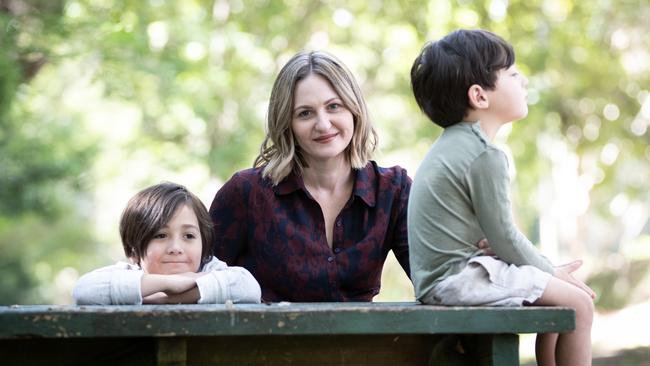
And the response I got was: ‘You know you’re rostered on today? RDOs for the rest of the week.”
Banville says what came next was an “out-of-body experience” as her physically and mentally exhausted body shut down.
“I’d already raised in the days leading up to that, on the back end of the police executions, that I was running on empty and I felt like I was trying to press start on an engine that wasn’t going,” she says.
“And so, for me, that just triggered panic attacks and I couldn’t talk for days, I couldn’t eat for days. It was just like a complete out-of-body experience where I was just quite numb really, feeling like I was going to vomit all day, every day.”
After some sick leave and annual leave she went back to work but “it was like self torture, trying to work through panic attacks”.
Banville says it was difficult shielding her two young sons, aged six and three, as she battled to get out of bed some days.
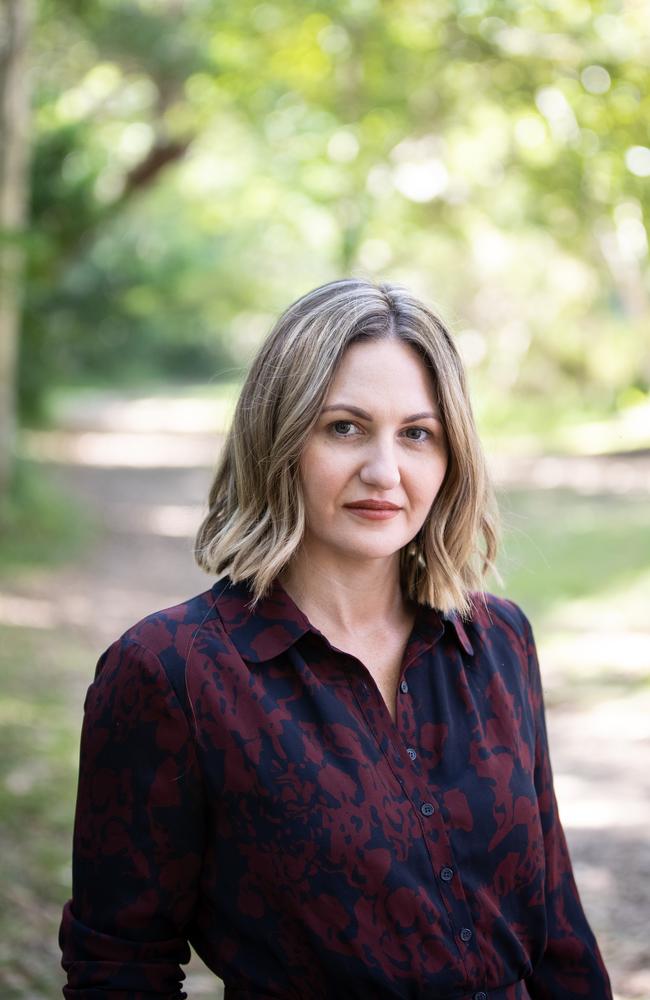
“There were some moments that were a kick in the guts, like I remember my six-year-old saying to me, ‘Mum, can you just not stay in bed, just stop being so lazy today’, it was really hard,” she says.
“I tried to find at least one thing every day to be grateful for and that could just be warm coffee or a hot shower.”
About a month after experiencing the complete mental, physical and emotional exhaustion of burnout, Banville came to the realisation that “maybe there’s not a way through this in this place” and she resigned two weeks later, feeling an “instant weight of relief”.
“I didn’t have to worry about a roster, I didn’t have to worry about putting on makeup and putting on clothes and turning up,” she says.
“I got to just focus on recovering and my GP was phenomenal in that she said this is the period of your life where you just batten down the hatches and you just recover.”
Banville, who now freelances for a range of publications, says she’d made the decision to share her difficult time so others experiencing burnout knew they weren’t alone and there was a way through.
She also believes workplaces, including newsrooms, could better consider “everybody’s cup is full at a different level”.
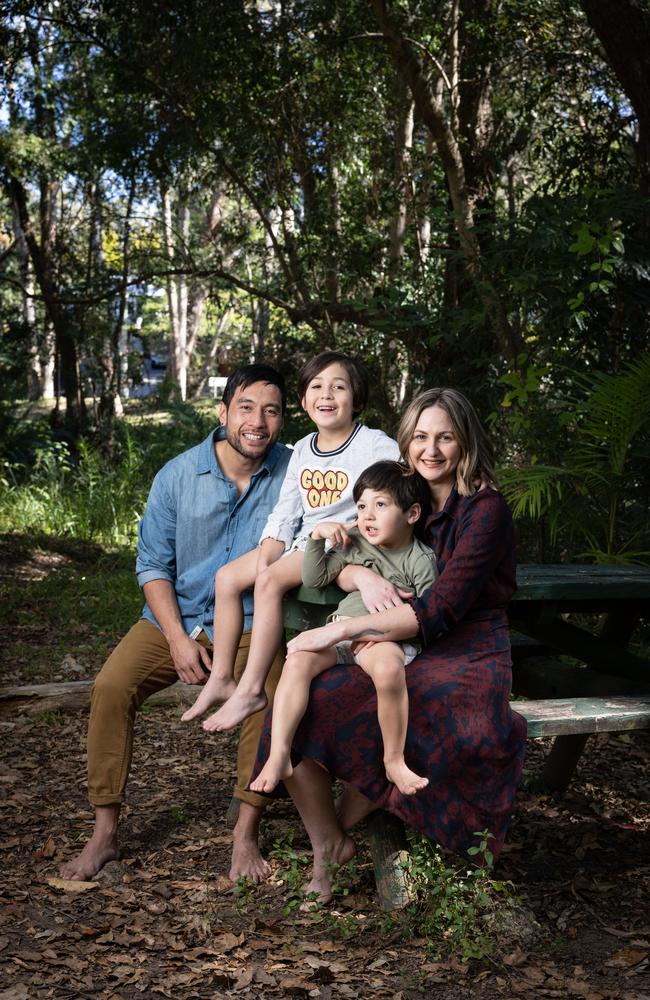
Burnout is included in the World Health Organisation’s International Classification of Diseases as an occupational phenomenon, defined as a “syndrome conceptualised as resulting from chronic workplace stress that has not been successfully managed”.
It’s not classified as a medical condition but is characterised by feelings of energy depletion or exhaustion, withdrawal, increased mental distance, or negative feelings about one’s job and reduced professional efficacy.
It’s estimated burnout costs Australia $14bn a year in work absences, presenteeism and resignations, says University of Queensland Business School’s senior lecturer Dr Adam Kay.
“There are very strong signs that burnout has been taking a particular toll in more recent years and in particular since the pandemic,” he says of the phenomenon first identified in the 1970s and 1980s.
He says people have different capacities to manage burnout and some industries are worse than others at managing employees’ burnout, identifying healthcare as particularly poor.
While people can alleviate burnout by doing meaningful work and prioritising sleep, physical exercise and friendships, Kay – who researches mindfulness and corporate social responsibility – says that’s not always enough.
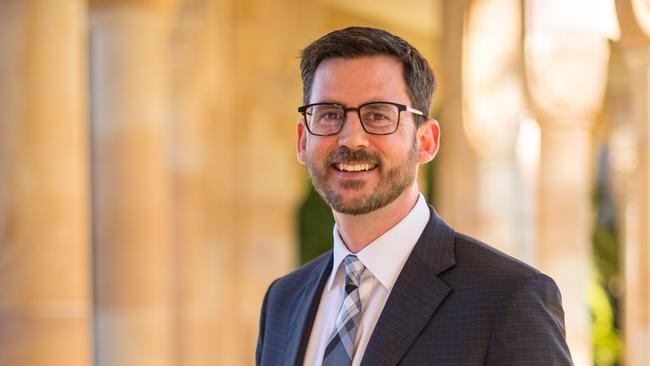
It was sometimes unfair for companies to urge their employees to practise mindfulness without acknowledging more systemic problems, like under-resourcing and poor workplace culture, he says.
Kay, who runs training for companies who want to improve, says he’s researching whether teaching mindfulness to select managers – or “burnout influencers” – would improve things for many more workers under them.
“Let’s target those ones because the decisions they make, we want them to be sound decisions grounded in a calm and collected perspective because those decisions have a greater impact on a greater number of people.” He says among the top reasons for people quitting their jobs is their direct supervisor, their boss.
“There is a very obvious trickle-down effect.”
Kay says burnt-out managers could have “short fuses” and were one of the biggest influences on a workplace’s culture.
“You’re emotionally exhausted, you don’t have the psychological resources and the emotional wherewithal to absorb the shocks that inevitably come through in your day-to-day work life … and therefore it’s going to be a bumpier ride for everyone,” he says.
Kay says developing “mindful leaders” and measuring whether the burnout experienced by their direct reports improved could be a smart way to “nibble away” at what is a larger systemic problem.
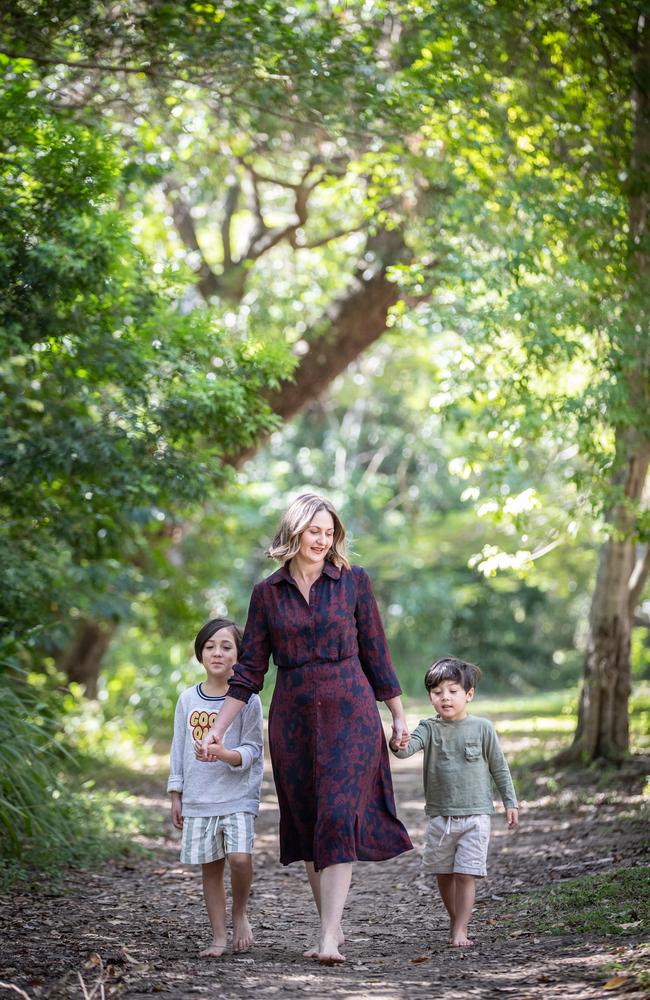
Alicia Genet, 41, quit her senior job at an energy company to take a career break in January after her mother’s poor health forced her to re-evaluate her idea of success.
“She needed back surgery and hip surgery and I couldn’t see how I could manage my daughter, my mum’s care and do my job that was really demanding of me because I was working 70 hours a week,” she says.
“That equation doesn’t stack up and I’m the person who’s suffering in this because I don’t want to let anyone else see chinks in my armour, so I’m the one that’s not getting any sleep, I’m putting all this pressure on myself.”
Genet – who says burnout felt like someone had taken her passion and “turned my battery all the way down” while she was “still running at 100km/h” – found herself reflecting on her father’s death a decade prior.
“I’d just taken a new role when he was put into hospital and then palliative care, and I placed this expectation on myself to hit my new role out of the park and because of that, in hindsight, I wasn’t as present for him when he was dying as I should have been,” she says.
“My own kind of moral compass felt really torn and I feel like I got it wrong.
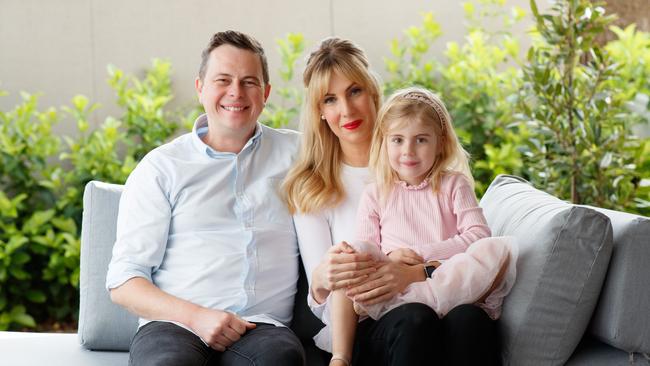
“And so when I found out that my mum wasn’t doing that well last year (and) just stepping back and looking at my life as my energy reserves felt really low, I thought ‘I don’t want to make that same mistake again’.”
With the support of partner Ryan Liddell, Genet has passed the time remodelling their bathroom, playing Lego in her PJs with daughter Ivy, 4, and concentrating on her board roles. About five months into her self-described career break, Genet was surprised when her smartwatch alerted her one day to her noticeably lower heart rate thanks to decreased stress levels.
“Just having the time and the space to breathe and notice what’s going on around me and not just flinging myself from place to place to place and commitment to commitment and trying to be everything to everyone all the time has been really life changing,” she says.
She says feedback on her break was mixed, with older men confused, and younger people wishing they could do the same.
“I do think there is some kind of expectation, and it is changing but it’s still there, that parents work like they don’t have kids and parent like they don’t have a job,” says Genet, who recently started four days a week as general counsel at SA company Fleet Space Technologies.
She agrees women often carry the mental load for their household, which can exacerbate pressures.
“There’s still an additional burden on women in terms of child rearing – it’s not in my house, but I can see that in a lot of households it is,” she says. “A lot of the women in my life, a lot of my friends, the question they ask me the most is, ‘Do you think women can have it all?’
“And my response is generally the one that my mentor gave me, which is I think that’s the wrong question. I think the question to ask is, ‘What matters to me and am I pursuing that notion of success?’”
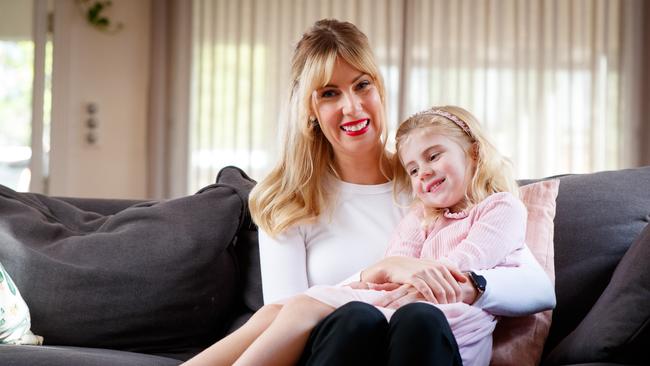
Long and inflexible hours are still the norm in many high-paying jobs labelled “greedy work” by prominent Harvard economist Claudia Golden, whose work examining the gender pay gap highlights how women often feel forced to leave these kinds of jobs after starting a family.
The Australian National University’s Tax and Transfer Policy Institute research fellow and economist Kristen Sobeck believes “greedy work” is inextricably linked to burnout. And while all people experience burnout, she says the sources of it can differ for men and women.
Sobeck says parents, usually the mother, often realised their big jobs were no longer feasible after they had children, with many experiencing burnout due to the impossibility of working long hours while parenting.
“I guess both partners can work 100 hours a week but if they intend on spending any time with their children, that doesn’t really work,” she says.
“So someone has to make a concession … and usually the woman decides to make that decision.” She says “burned out” mothers might change industries, or take a lower-status job in the same profession to give themselves more time, despite the career and salary penalty.
“I think it’s fair to say if they try to do a greedy job, and they try to do all of this extra unpaid care work, they’ll be burnt out beyond imagination, so I think the two certainly are linked,” she says.
But Sobeck says these problems aren’t unsolvable for the professions that value their employees, pointing to changes that have allowed pharmacists and obstetricians to work in professional groups.
Unlike lawyers and investment bankers, their industries have jobs that can be shared by whoever happens to be on shift, meaning their work lives can be better planned without the need for long, unpredictable hours.
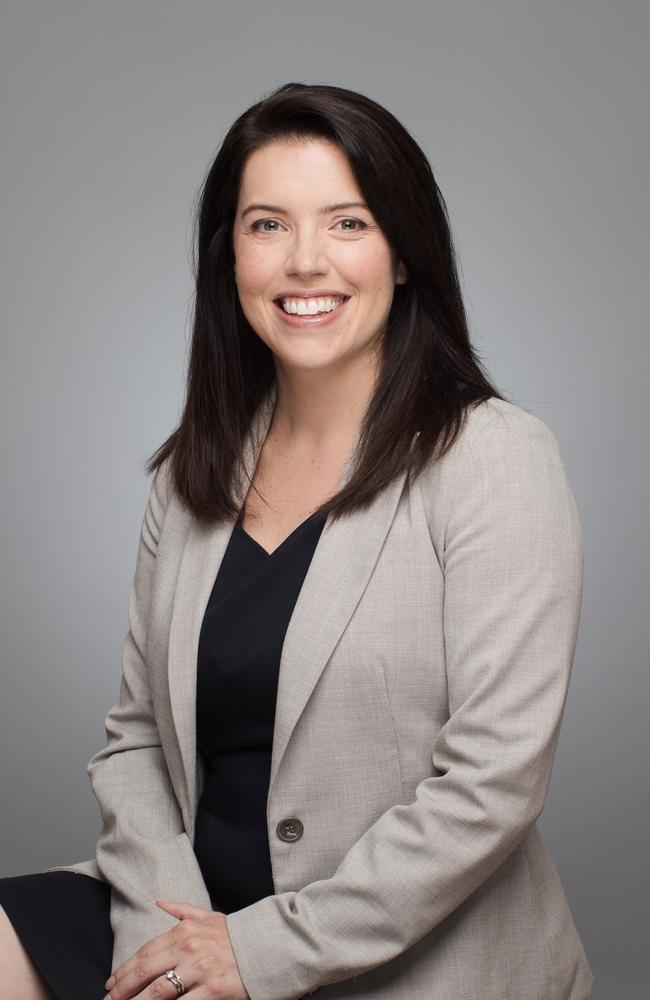
“Some people say some jobs can’t change (but) I think there’s a fair bit of evidence that they can,” Sobeck says, adding that investment banking can’t be more complex than delivering a baby. Better access to childcare, encouraging men to take parental leave and work non-greedy jobs, and shifts in societal attitudes were also part of creating more equitable workplaces for all, she says.
Tanya Boots, 49, solved her own burnout when she threw in her job and started her own business – Inspirational Tea Co – and began working smarter, not harder.
A senior manager at a leading consumer goods company in Sydney three years ago, Boots felt the weight of burnout – she stopped looking after herself and “couldn’t get back on track”, lost her enthusiasm and motivation for work and became more insular – after she was promoted but had to backfill her old role in a short-staffed team.
“So I was kind of doing three jobs and then I had a couple of projects on top of that as well,” she says.
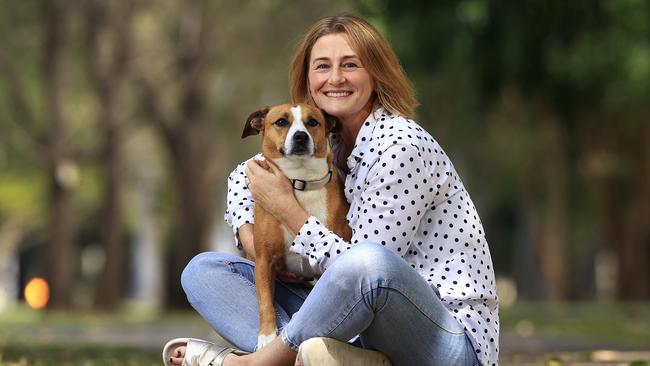
“And so I wanted to prove to everyone I was the right choice, but it was full on, particularly with lots of meetings and very little time to actually get the work done.”
Her breaking point was one evening when an important meeting started late.
Despite arranging with after-school carers for her primary school-aged son to make the short walk home to his older sister in daylight hours, they forgot to tell him in time.
“So he starts walking home and he didn’t have a mobile phone at that time, he was too young, and my daughter was home and I’m calling her and saying, ‘Is your brother there?’ And she says, ‘No,” Boots says.
“I’m trying to call after-school care but they’re all gone and so I’m in this meeting and it was just awful – I didn’t know where he was. That was probably the moment when I thought, ‘Yeah, this is not something that’s sustainable’.”
When her husband was offered a work opportunity a short time later, she happily quit and started her bespoke tea brand at their new home on the Gold Coast.
The small business owner now has time to exercise, has the flexibility to work around important family events and finishes her days watching the sunset with her husband, drink in hand.
“Honestly, it was tea that saved me in my old job,” she says of how she would break up the relentless meetings.
“It would just be something that would give me a reset and was it only later that I, funnily enough, started a tea business and that is one of my key messages: Just take a break.”




